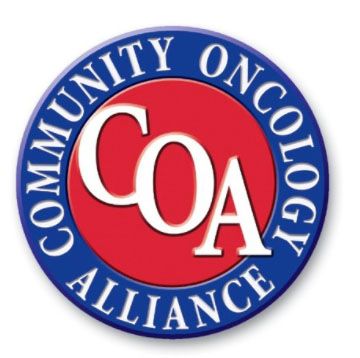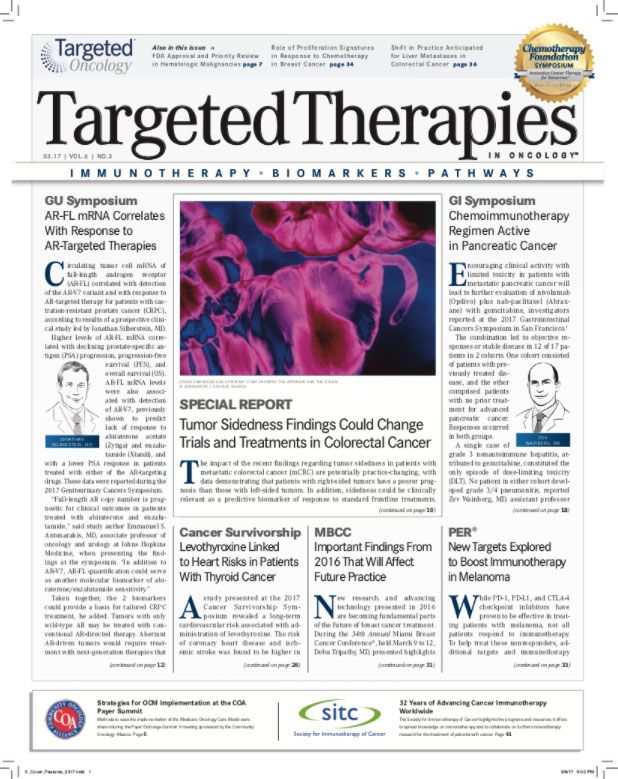Strategies for OCM Implementation at the COA Payer Summit
Discussing the challenges that clinical practices will face as they implement the Medicare Oncology Care Model (OCM), the strategies that have worked for practices using similar payment models, and how the CMMI hope to work with oncologists for the success of the OCM.

What are the challenges that clinical practices will face as they implement the Medicare Oncology Care Model (OCM)? What are some of the strategies that have worked for practices using similar payment models? How does the Center for Medicare & Medicaid Innovation (CMMI), also known as the Innovation Center, hope to work with oncologists for the success of the OCM? These were some of the questions that were discussed at the Payer Exchange Summit V sponsored by the Community Oncology Alliance (COA).
Experts on the panel included Jeffrey Patton, MD, chief executive officer, Tennessee Oncology; Barbara McAneny, MD, chief ex- ecutive officer, New Mexico Hematology Oncology Consultants; and Ron Kline, MD, medical officer, CMMI.
Patton provided the perspective of a practice that has 3 months’ experience with OCM. “It’s been good with respect to investing the dollars,” he said. “We used Via Oncology [clinical] pathways; nurse triage is important, and we built it on a Salesforce platform. We have also developed a relationship with a palliative care company. Additionally, care coordination is the last thing with respect to the OCM that we had to include as part of our practice transformation.”
Patton told the audience that at their cancer clinics, the focus is on the top 10% of patients that may need hospitalization. These patients are expected to have a significant impact on care costs. He added that with 85 doctors and 32 sites of care delivery, “We try to take care of patients where they are.”
COME HOME is an oncology medical home model that McAneny pioneered at New Mexico Hematology Oncology Consultants. “With COME HOME, our first year was spent on ramping up practices,” McAneny said. “So, with the OCM, practices that might already have a similar model in place might need about 6 months to gear up. We don’t yet know what the ‘targets’ will be; it’s still a blur.”
McAneny firmly believes that clinical pathways are critical to adequately implement cost-saving reimbursement models. “With COME HOME, we created pathways in a collaborative waythey are a very important decision support tool. Triage pathways are important, too,” she said.
Kline said he was delighted to see that oncology practices have started developing innovative ways to implement the OCM, which, he added, is the objective of this pilot phase. “We have 95 practices with $6 billion in oncology spending, 3200 physicians, and 5000 providers under the OCM,” Kline told the audience, adding that he hoped that through their work, “We are changing oncology care in the country.”
Speaking to the significant impact of drugs on the cost of care, he said that there are 2 categories of drugs. The first are game- changing drugs that are essential, but most of those are expensive. The second category are drugs that can be replaced by strategies that are equally effective but cheaper. “It comes down to making nancially stable choices on treatments,” Kline said.
The OCM requires physicians to include data on staging and molecular characterization of patient tumors in the electronic health record (EHR). “We want to identify EHRs that will minimize physician burden and include them in the OCM system,” Kline said.
So, what are some of the challenges with meeting OCM requirements, and what specific changes do clinics need to adopt to? Kline said that staging and mutations data are not a part of the claims system. “For a better model, we need to include this information in the system.” He added that the first year of quality reporting is “pay- for-improvement, not pay-for-performance. So, the [requirement] is that you have to do this...submit the data.”
Patton expressed concern with quicker access to outcomes data. “Technology platforms, like [those developed by] Flatiron Health, can help us understand where we are lagging,” he said.
Speaking about the importance of care coordination in improving outcomes, McAneny said, “Care coordination occurs with the simplest things in the clinic, such as when a doctor speaks to a nurse about adjusting a chemotherapy dose. It’s therefore a mat- ter of documenting these daily coordination activities.” She told the audience that the unique experience with the OCM is that she felt she was on the same page with CMS on this. “We, at our clinics, have now set up a way for patients to sit down with a midlevel provider to talk about the care plan, their goals of care, and distress issues that we can help them with.” She emphasized that vendors need to create a platform that does not interfere with the practice work ow or make the oncologist a data-entry operator.
“The government really wants this to work...if we don’t succeed they don’t succeed,” Patton added.
Speaking to the aspect of nancial risks associated with the OCM, which are 1-sided in the first 2 years and then become 2-sid- ed, McAneny said that she has very smart data managers working for her “who used a Monte Carlo scenario.” Using this model, they try to identify those patients whose cost of care would result in the practice paying back to Medicare. “Through the National Cancer Care Alliance, we are trying to develop a process where we share a larger group of patients and reinsure these patients to balance the associated actuarial risk,” McAneny said.
“You don’t have to assume a 2-sided risk at all during the entire 5-year period. But with 1-sided risk, you have to show savings after 2 years,” Kline told the audience.
Reference:
McAneny BL. The future of oncology? COME HOME, the oncology medical home. Am J Manag Care. 2013;19(spec no 1):SP41-SP42.

Survivorship Care Promotes Evidence-Based Approaches for Quality of Life and Beyond
March 21st 2025Frank J. Penedo, PhD, explains the challenges of survivorship care for patients with cancer and how he implements programs to support patients’ emotional, physical, and practical needs.
Read More